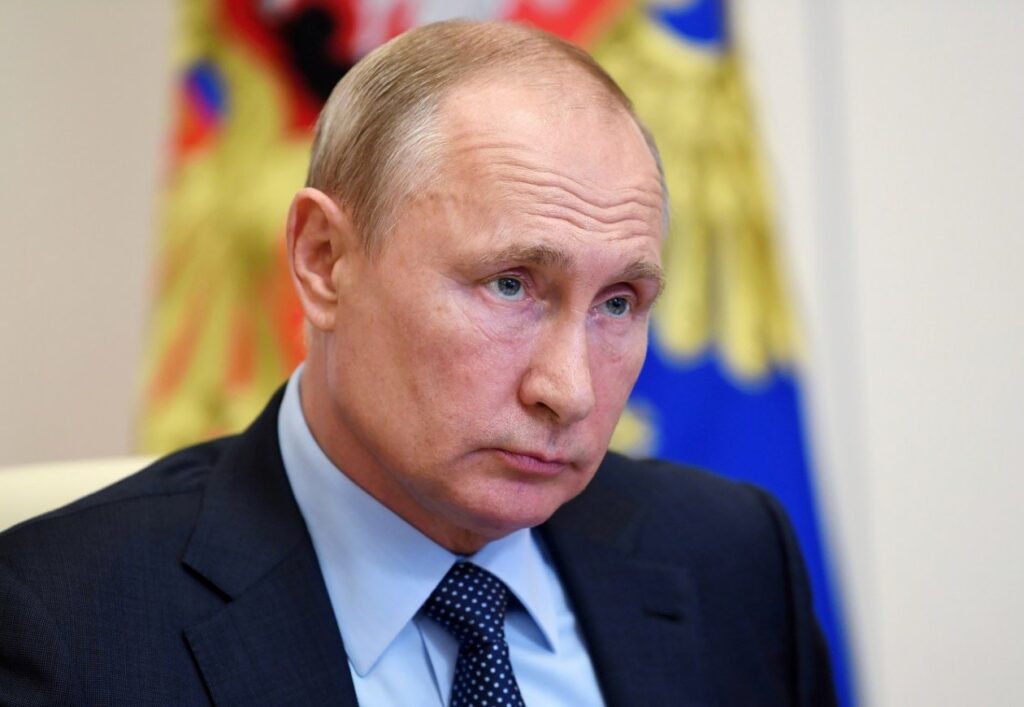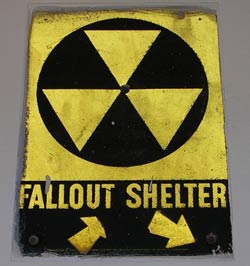
from ZeroHedge, 10/27/22
Note: Emphasis in original.
Update(1534ET): Putin in his nearly four-hour long annual Valdai Discussion Club speech (which included a the lengthy Q&A portion) “appeared relaxed”, Reuters observed while at times questioned by journalists and panelists about the prospect of nuclear war.
Importantly, he rejected head-on the allegations from the West that he ever so much as hinted at plans to deploy nukes in Ukraine, describing a nuclear strike in the context of the “special operation” to be ultimately pointless. “We see no need for that,” Putin said. “There is no point in that, neither political, nor military.” He underscored, “it doesn’t make sense for us to do it.
He went on to emphasize that Russia had “never said anything proactively about the possible use of nuclear weapons by Russia.” At the same time he lashed out at Washington, for being the “only country in the world that has used nuclear weapons against a non-nuclear state” – in reference to WWII and the bombs over Hiroshima and Nagasaki.
He specifically referenced prior statements of Liz Truss and vague references to his saying he’s willing to defend Russia “by all means available” as having been intentionally misinterpreted and distorted:
Putin said an earlier warning of his readiness to use “all means available to protect Russia” didn’t amount to nuclear saber-rattling but was merely a response to Western statements about their possible use of nuclear weapons.
He particularly mentioned Liz Truss saying in August that she would be ready to use nuclear weapons if she became Britain’s prime minister, a remark which he said worried the Kremlin.
“What were we supposed to think?” Putin said. “We saw that as a coordinated position, an attempt to blackmail us.”
Literally as Putin was speaking, the Pentagon decided it was a good time to unveil a stunning nuclear strategy reversal, saying it would no longer rule out use of nuclear weapons against a non-nuclear threat.
As we detailed earlier, the Defense Department said in the long-awaited document issued Thursday that “By the 2030s the United States will, for the first time in its history face two major nuclear powers as strategic competitors and potential adversaries”. In response, the US will “maintain a very high bar for nuclear employment” without ruling out using the weapons in retaliation to a non-nuclear strategic threat to the homeland, US forces abroad or allies.
In the document, which was framed well before the invasion, the Pentagon says Russia continues to “brandish its nuclear weapons in support of its revisionist security policy” while its modern arsenal is expected to grow further.
Of course, Putin is now essentially pointing the finger at Washington and its allies for being the real nuclear threat in the world. The DoD briefing certainly didn’t hurt his case, at least from the point of view of Moscow and its allies.
* * *
“Russia is not challenging the western elite. We are not trying to become the hegemon,” Russian President Vladimir Putin said early in an important speech before the Valdai Discussion Club meeting outside Moscow on Thursday. Each year the Valdai speech is a major one and closely watched by Western officials and media.
This year it was touted with the eye-catching title of “A Post-Hegemonic World: Justice and Security for Everyone.” And of course, this year’s Valdai meeting comes against the backdrop of the biggest war Europe has seen on its eastern doorstep since WWII.
Putin said in his remarks that Russia merely wants to “defend its right to exist” and “won’t let itself be destroyed and wiped off the geopolitical map.” This as nuclear rhetoric and threats of defending red lines between Moscow and the West have reached heights not seen since the Cold War.
He repeated a familiar refrain of a crisis unfolding because the Western allies are using Ukraine for their “dirty game” in an ultimate drive for world domination. “Power over the world is what the West has put at stake in the game it plays. This game is certainly dangerous, bloody and I would call it dirty,” he said according to a state media translation.
“But in the modern world, sitting aside is hardly an option. He who sows the wind will reap the whirlwind, as the proverb says,” he added. Repeating a well-known theme of his, juxtapositioning collapsing unipolar order vs. multipolarity, he said “new centers of power in the multipolar world and the West will have to start talking as equals about our common future.”
“[This game] denies the sovereignty of nations and peoples, their identity and uniqueness, and has no regard whatsoever for other countries,” Putin added.
Commenting on one segment of the talk, The New York Times said the Valdai speech sought to appeal to conservatives in Europe and the US:
Mr. Putin insisted that Russia did not fundamentally see itself as an “enemy of the West.” Rather, he said — as he has before — that it was “Western elites” that he was fighting, ones who were trying to impose their “pretty strange” values on everyone else.
“There are at least two Wests,” Mr. Putin said in his speech at the plenary session in Moscow of an annual foreign policy conference. One, he said, was the West of “traditional, mainly Christian values,” which Russia was close to.
But Putin drove home in contrast that “There’s another West — aggressive, cosmopolitan, neocolonial, acting as the weapon of the neoliberal elite.”
Ukrainian officials have been watching the speech closely, and commenting:
“Confidence in one’s infallibility is a very dangerous state, one step away from destroying those they don’t like” – Putin knows what he is talking about at Valdai. pic.twitter.com/0VRSjKlWiu— Maria Avdeeva (@maria_avdv) October 27, 2022
And more specifically on the Ukraine conflict, the Russian leader charged of the West’s actions, “They’re always trying to escalate…They’re fueling the war in Ukraine, organizing provocations around Taiwan, destabilizing the world food and energy markets.”
And more via state media translation:
Putin warned that the West’s confidence in its “infallibility” is a “very dangerous” condition, with there only being “one step” between this self-confidence to the idea that “they can simply destroy those they do not like, or as they say, to ‘cancel’ them.”
Emphasizing that Russia is not a natural “enemy” of the West, Putin urged Western political elites to stop seeing “the hand of the Kremlin” behind all their internal problems.
On multipolarity, Putin’s message to Europe is essentially “take it or leave it”…
Putin is at it again. New Munich III speech at Valdai conference. He is laying the foundations of new multipolar world order. The message to Europe is “take it or leave it”. pic.twitter.com/oUixDO7Jmm— србин (@forzaserbia) October 27, 2022
Western officials are also keeping a close watch on Putin’s words regarding nuclear doctrine and usage. Putin at Valdai underscored he sees “no political or military reason” to conduct a nuke strike in Ukraine. He also stressed Moscow’s nuclear doctrine is defensive in nature. “Russia has never talked about nuclear use, only replied,” he said.
He went on to warn that it remains Russia will never “put up with what the West tells it to do” – and that while Russia should not be seen as a direct challenge to the West, it reserves the right to develop. With this theme established, Putin asserted that Washington has discredited international finance “by using the dollar as a weapon” – thus he posited that in the future continued moves toward “settlements in national currencies will dominate.”


